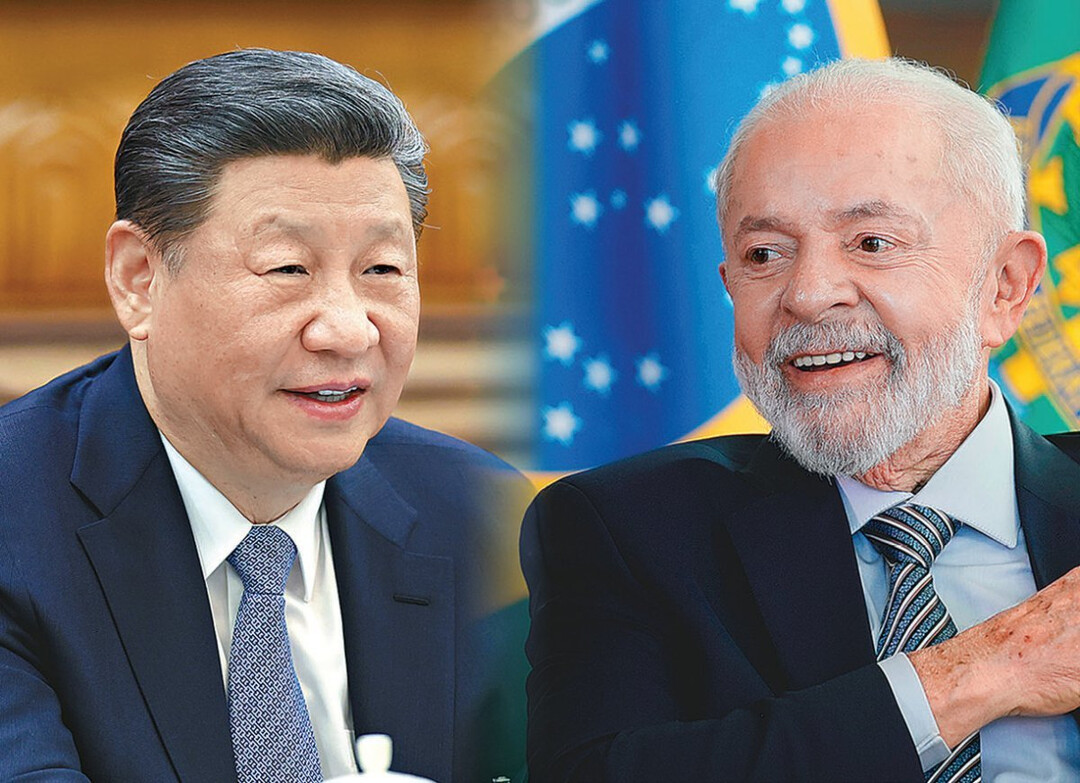
While trade tensions between the United States and China appeared to be easing, China is accelerating its efforts to criticize what it calls the U.S.'s unilateral actions and strengthen solidarity with friendly nations. In particular, Chinese President Xi Jinping strongly criticized U.S. trade policies through a summit with Brazilian President Luiz Inácio Lula da Silva and the Ministerial Meeting of the Forum of China and the Community of Latin American and Caribbean States (CELAC), seeking to bolster cooperation with Brazil and other Latin American countries.
According to China's state-run Xinhua News Agency on the 14th, President Xi held a summit with President Lula in the Great Hall of the People in Beijing the previous day and issued a joint statement. In the joint statement, the two leaders emphasized that "as two major countries in the Eastern and Western Hemispheres, we must safeguard the international economic and trade order and firmly oppose unilateralism, protectionism, and bullying." This is interpreted as a direct criticism of U.S. tariffs and trade policies. President Lula also supported China's position, stating that "excessive tariff burdens only create chaos," and had previously strongly criticized the mutual tariff policies of a former U.S. president last month as a "violent act that breaks the multilateral principles of world trade."
On the same day, President Xi, in his keynote speech at the opening ceremony of the 4th Ministerial Meeting of the Forum of China and the Community of Latin American and Caribbean States (CELAC), also criticized the U.S., saying, "There are no winners in tariff wars and trade wars. Bullying will only lead to isolation." President Xi's remarks are seen as an attempt to secure friendly forces who support China and can serve as alternative markets to the U.S., in anticipation of a potential resurgence of trade disputes with the United States.
China's proactive pursuit of an anti-U.S. coalition is rooted in lessons learned from its past trade war with the United States. In 2018, during the first term of a previous U.S. administration, the U.S. and China engaged in a trade war involving high tariffs and then temporarily agreed to a truce. However, the conflict reignited when the U.S. withdrew from negotiations. Through this experience, China has recognized that negotiations with the U.S. can break down at any time and is focusing on securing supportive allies.
Chinese Foreign Minister Wang Yi, at the Forum of China and the Community of Latin American and Caribbean States (CELAC) meeting, criticized a "major power clinging to the logic that might makes right," and urged, "Let us join hands with China to safeguard our rights against countries that use tariffs as weapons to bully other nations." In a subsequent press briefing, he stated that "this ministerial meeting was a great success" and emphasized that the "super-large market of two billion people combined by China and Latin America will provide new growth momentum for both sides."
By strengthening economic cooperation with Latin America, China aims to check U.S. influence and secure its own economic interests. Latin America is a market with abundant resources and growth potential, and China is establishing stable supply chains in various fields such as energy, minerals, and agricultural products through cooperation with this region. Furthermore, China is expanding its political influence through investment and infrastructure construction support for Latin American countries.
China's moves are interpreted as part of a strategy to gain an advantage in its hegemonic competition with the United States. The U.S. considers Latin America to be its traditional sphere of influence and is wary of China's advance. However, China aims to weaken U.S. influence and build a multilateral international order through economic cooperation with Latin American countries.
Experts suggest the possibility that China's Latin American diplomacy may expand beyond simple economic cooperation to include political and military cooperation. China is increasing military exchanges with Latin American countries and has even conducted joint military exercises with some nations. Concerns are being raised that such military cooperation could pose a threat to U.S. security.
The future relationship between China and Latin America is expected to be a crucial variable in the U.S.-China hegemonic competition. If China's Latin American diplomacy is successfully pursued, U.S. influence will weaken, and China's international standing will be further strengthened. On the other hand, if U.S. containment intensifies, China's advancement into Latin America may face limitations.
[Copyright (c) Global Economic Times. All Rights Reserved.]




























